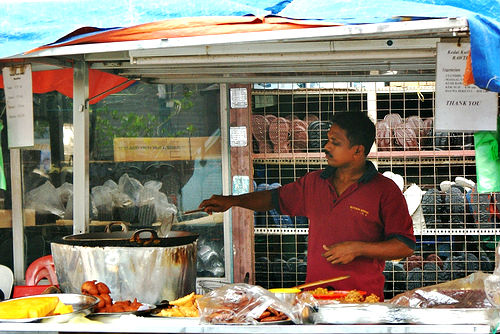Dysentery is a rarely fatal disease that’s caused by the ingestion of contaminated food items or water, and it can be prevented through good personal hygiene, safe drinking water, and the proper disposal of sewage. When it comes to dysentery prevention, the first and foremost factor that you should take into account is your personal hygiene.

Dysentery Prevention Tips And Techniques
Given below are seven simple and effective dysentery prevention tips.
-
Maintain Good Personal Hygiene
Washing your hands regularly is a vital habit that will help you avoid many infections and diseases. Wash your hands thoroughly:
Before
- Preparing food
- Eating
After
- Using toilets
- Changing diapers for children
- Looking after a dysentery patient
- Handling pet animals
- Gardening or touching soil
-
Always Drink Sterilized Water
Ensure that the water you use while drinking, brushing your teeth, and washing vegetables and fruits is free from any dysentery causing germs. This can be achieved through proper water treatment, which is an important dysentery prevention technique.
- Boil water to 100 °C at least for 1 min (ideally 10-15 minutes)
- Never drink untreated tap water before cleansing it
- Use water purifying tablets 15 minutes before drinking untreated water
- Use filters that have a pore size of 1µ or smaller, or that have been specially designed for ‘Cyst Removal’
- Use filtration devices such as Aqua Guard with UV or other Reverse Osmosis treatment facilities
Once the water has been treated to remove any kind of dysentery causing germs (microorganisms), store it in a clean place and keep it well covered.
-
Practice Proper Sewage Disposal
Dysentery causing organisms are spread through the feces of individuals who are infected. These microorganisms are excreted along with the feces and contaminate the soil and water, making them potential sources of infection.
For this reason, it is important to properly dispose the feces without letting it mingle with other elements. Care should be taken to ensure that the sewage doesn’t contaminate surface or ground water, or any other water body that people use for consumption.
Untreated sewage shouldn’t be used as fertilizers as this too can contaminate crops, fruits, and vegetables that reach humans and trigger an infection.
-
Practice Safe Sex
Sexual intercourse that involves oral or anal contact can cause amoebic dysentery. Wash your hands thoroughly with soap and warm water, as this can help you prevent an infection to some extent.
It is ideal that you refrain from sexual activities that involve anal contact, as this will make dysentery prevention easier.
-
Eat Safe And Eat Right
Your food habits can also cause amoebic dysentery. Following the below measures can help you avoid contracting the infection.
- Wash fruits and vegetables with clean and safe water, before use
- Avoid eating raw or undercooked food items
- Avoid eating from street vendors
- Choose ice creams or drinks made of safe water
- Eat fruits that can be peeled off and include these in your diet
- Never use unpasteurized milk or dairy products

-
Take Precautions While Travelling
When you travel to tropical countries with poor sanitary conditions, take extra care and follow these simple measures to keep dysentery symptoms at bay.
- Drink only boiled water or bottled water
- Do not eat or drink food items and beverages sold by street vendors
- Don’t swim in contaminated water bodies or swimming pools
- Avoid salads if you’re not sure about their quality
- Always keep your doctor updated about your travel history for better diagnosis
-
Keep Your Community Safe
It’s equally important to take responsibility for the good health of others around you too. You can do this by following some simple dysentery prevention measures.
- If you’re a healthcare worker taking care of a dysentery patient, ensure that you wash your hands thoroughly with soap after tending to a patient
- Child care employees should use gloves when changing diapers for children and should wash their hands after tending to every child
- Never defecate near water bodies and ensure that your sewage system is well established
- Don’t attend any public gatherings or report at work if you have dysentery, in order to minimize the chances of spreading infection
As there is no immunization that can protect patients against amoebic dysentery, it is important that you adopt dysentery prevention measures for preventing the disease – within your house and in your community. On occasion, dysentery causes manage to get past the prevention measures taken. In such cases, opting for timely amoebic dysentery treatment is recommended.